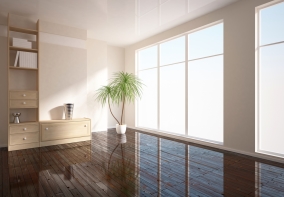By Tom Lozano,
Executive Director of Air Scrubber Plus
 Indoor Air Quality, also known as IAQ, refers to the quality of the air within your home. IAQ is an important, and often overlooked, area of home improvement. But the effects of improved IAQ are immediate for you and your family.
Indoor Air Quality, also known as IAQ, refers to the quality of the air within your home. IAQ is an important, and often overlooked, area of home improvement. But the effects of improved IAQ are immediate for you and your family.
Health issues can be exacerbated by poor IAQ , especially for small children and seniors, since poor indoor air quality can damage developing or weakened immune systems. Those suffering from asthma and allergies are most at-risk, since breathing low-quality air will make those respiratory conditions even worse. According to the American Journal of Respiratory and Critical Care Medicine, asthma cases could be reduced by up to 60 percent if dust mites and cat allergens were kept under control. Other areas of concern for today’s homeowners include: combustion sources, like oil, gas, wood and tobacco; building materials, like asbestos insulation and new carpet and paint; cleaning products; plug-in/portable humidifiers; outdoor sources, such as pesticides and outdoor air pollution; and poor ventilation.
Getting a handle on the sources of contaminants affecting your home’s IAQ is the first step.
Here are some tips to improve your home’s indoor air quality and the health of your family:
· If you smoke, don’t do it inside. The harmful chemicals in cigarettes can linger in the air, affecting your entire family.
· Make sure that you properly clean your home. Ridding your bathrooms and basements of harmful mold and mildew is essential. Use all-natural cleaning products whenever possible to cut down on further contaminating your home.
 · Repair all standing water issues and keep your home’s humidity under 50 percent. Any higher and you risk creating an environment where harmful bacteria, mold and mildew can thrive.
· Repair all standing water issues and keep your home’s humidity under 50 percent. Any higher and you risk creating an environment where harmful bacteria, mold and mildew can thrive.
· Properly vent all fuel-burning appliances, like gas stoves, water heaters and fireplaces.
· Don’t store chemicals, paints or solvents within the home. Keep them in a garage or shed if at all possible.
· Air-freshening devices may make your air smell nice, but they do so with a mix of chemicals that can be toxic to your family and pets.
· A more permanent and effective solution for many families is to install an air cleaner in your home’s existing heating and cooling system. These types of systems are installed by a certified HVAC technician.
No matter how big or small, making steps towards improving your home’s indoor air quality will help you and your family breathe easier, particularly if anyone in your family suffers from a respiratory disorder or compromised immune system.
